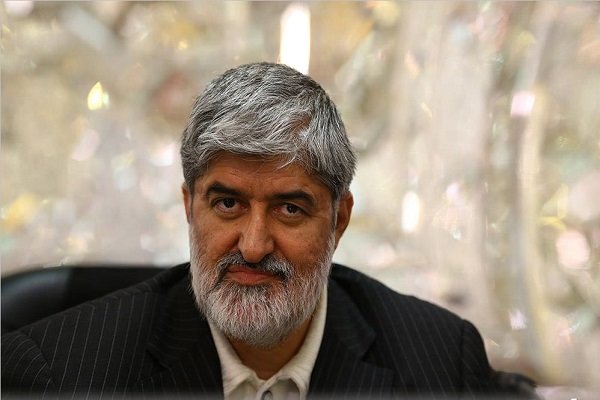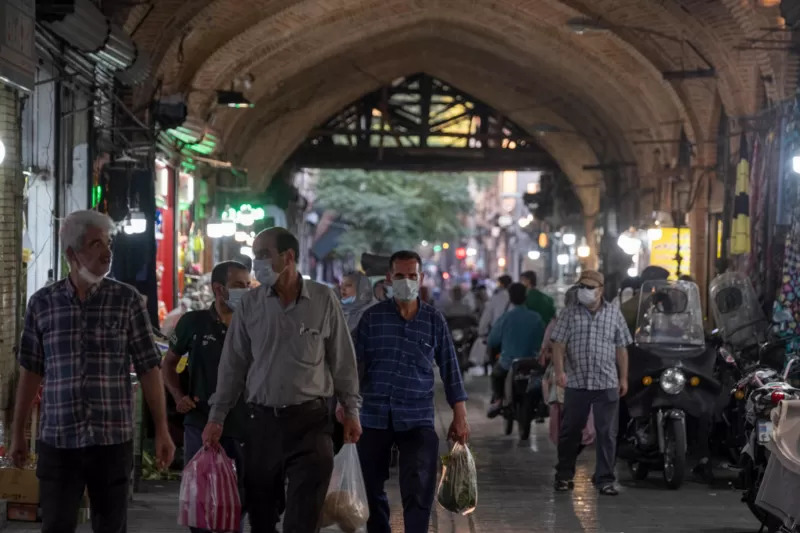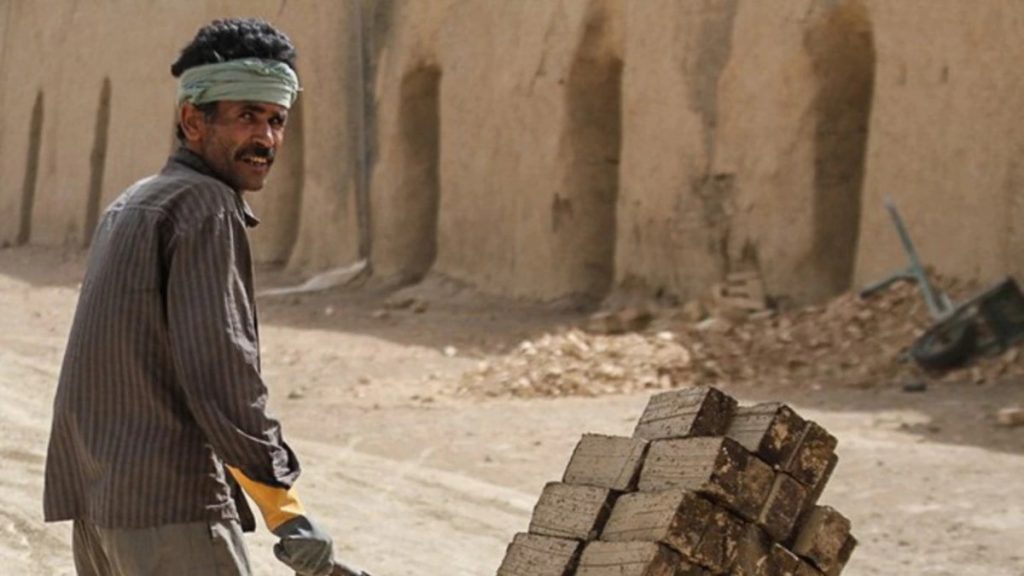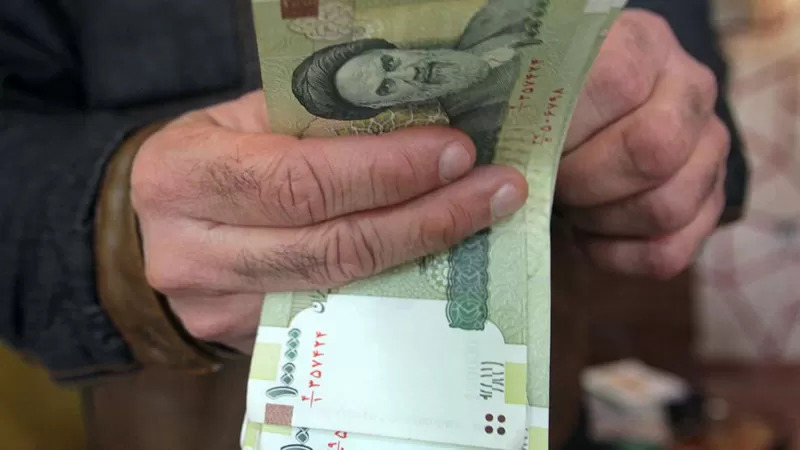
Increase in the Number of Street Children Searching Through Trash
The editorial of Aftab Yazd focuses on the issue of street children, particularly those who forage through trash to make a living for themselves and their families.
There was supposed to be no children on the streets looking for trash, and these children were supposed to be protected and be studying like other children. But these days wherever we look, children are foraging through trash bins.
Due to poverty and livelihood problems, children are forced to take to the streets to earn a living. The issue of street children has turned into a social catastrophe. Under these circumstances, they are deprived of free and compulsory education, free health, and nutrition.
Obviously, one of the most significant fallouts of the increase in children foraging through trash in big cities is the increase in the rate of child poverty, which can prepare the ground for the emergence of other social, economic and even political problems. This is because many socialists maintain that an increase in child poverty is a serious warning for the future of society.
In other words, whenever searching through trash for survival increases in a society, it indicates the widening class disparity. Poor people within a society, or those who search through trash just to stay alive, believe that their rights have been usurped by the wealthy, which, in turn, can increase the level of public anger.
It must be noted that field studies show that searching through trash is a task more difficult and painstaking than panhandling. Moreover, some hold that foraging through trash cannot be done independently; it must be organized by certain individuals.
Iranian officials must think of a solution for these children; otherwise, with the increase in the number of children who forage through trash to survive, there will be consequences for the whole of society.
Iran’s National Interests and Nothing Else!
The editorial of Aftab Yazd urges that Russia cannot be considered a reliable ally in the talks for reviving the nuclear deal, underscoring that the Iranian government must concentrate on national interests.
Agreement over the nuclear deal seemed imminent, but Russia’s new demands in the Vienna nuclear talks have cast a shadow of doubt all over it. Given the escalation of tensions in the global community, Iran must work to obtain its national interests and create foreign investment opportunities.
Tehran must put Moscow under pressure and convince Vladimir Putin to not sacrifice the nuclear deal for his own confrontation with the Western countries. Iran should not allow foreign powers to damage the prospect of returning to the nuclear deal and should not allow any foreign actors to impact its national interests.
Today, Russia is under sanctions and is not interested in resolving Iran’s nuclear issue, and this is not in line with Iran’s national interests. All countries must act in accordance with their own national interests, and Iran too must take measures to provide for its own national interests. Russia’s new demands in Iran’s nuclear deal are the main cause for delay in reaching an agreement in Vienna.
The Iranian nation hopes for the war in Ukraine to come to an end soon, but this crisis should not create any problems for Iran’s national interests. Iran’s negotiating team must clearly explain the details of Russia’s demands for people, because the prospect of the nuclear deal in Vienna is not that clear any longer.
Moscow should no longer play a key role in achieving any new agreement with Tehran, while the Iranian government must be careful about Russia’s position toward the nuclear deal.
Eventually, an agreement in Vienna will be considered a political victory for Ebrahim Raisi’s government and can bring a lot of economic achievements. An agreement will create good opportunities for economic and security agreements.
Iran is facing a grave economic situation. A policy based on national interests will end all sanctions.
Most Important Social Issues and Problems
The editorial of Aftab Yazd highlights the plight of the Iranian people including distrust and lack of responsibility toward each other, urging that Iranian officials are partly responsible for these issues by making empty promises.
One of the most important problems in Iranian society now is that people do not treat each other ethically and responsibly which means that people’s trust toward each other has severely plummeted, as one can see in very simple daily transactions among people. Even members of families do not trust each other, which has made distrust the biggest issue in Iranian society.
The other important issue in Iranian society is violence in its different forms, including verbal and physical violence. The Iranian people’s threshold of tolerance has become very low, and over any small issue, they snap at each other. For example, the number of scuffles in the city of Tehran is very high. These days, even members of families act violently against each other in different ways. People no longer rely on each other and enjoy each other’s support.
The other issue is that of depression and anxiety which, as statistics show, has been on the rise in Iranian society. Depression results in loneliness which manifests itself in different forms, including suicide. Although the number of suicides might be lower compared to the global rate, the age of suicide has declined.
Nowadays, Iranian people feel abandoned while acting toward each other with no sense of responsibility. The gap between social groups has created a situation in which people have lost hope and officials’ empty promises make the situation more difficult. In modern societies, governments must play their roles properly to fulfil people’s rights and support the people.
Change Requires Strategy for Industrial Development
The editorial of Vatan Emrooz deals with the flaws of the “Development Document of the People’s Government” – a new economic document prepared by Ebrahim Raisi’s government.
It has been almost six months since the 13th government took office and its economic team defined the realization of economic growth as one of its main objectives in its agenda. One of the requirements of economic growth is industrial development in the country, which must be formulated within a clear enforceable plan. In fact, to realize economic growth, it is necessary for the government to prepare a strategy for industrial development and a clear strategy for the country’s industrial sector, using the experience of developed countries.
The “Development Document of the People’s Government” was recently released by the 13th government, aiming to elucidate the main policies of the government in different fields. The government’s resolve in formulating this document is admirable, showing that the government pays attention to the necessity of planning and policy making in large-scale frameworks to bring about progress in the country.
But apart from the fact that preparing a document is a step forward in policy making in the country, it is necessary to have a unified, clear idea. Otherwise, enforcing the document will face difficulties.
One of the challenges that can be seen in certain economic parts of the development document is a contradiction in policies, which is because apparently each part of the document has been prepared by a team of experts who do not share a single approach or vision in policy making. In fact, different think tanks have different approaches to economic policy making and their experts’ views do not contribute to a single vision.
The other challenge of this development document is that it is not formulated from a general perspective and is entangled in unnecessary details. For example, in the economic part, the development document must formulate the relation between different industries. In certain parts of the development document, this issue is not observed — a shortcoming which must be addressed in its future revisions.
The economic part of the document must determine a set of long-term orientations for the government and must define the relationship of the country’s industrial sector with the global economy. This in turn will indirectly impact the allocation of resources among industries or influential groups domestically.
In the end, it must be emphasized that Iran is suffering from lack of a strategy for industrial development. The country’s industry does not have any clear economic strategy. Although the development document has tried to remedy this shortcoming, it is not enough, and the government must do its part in preparing and formulating a strategy for the country’s industrial development.

Former MP Ali Motahari: Russia Wants Iran to Be Its Hostage in the Nuclear Talks

With the talks in Vienna for reviving the nuclear deal facing serious problems after Russia made last-minute demands, a considerable portion of the Iranian public is convinced that this is because the Iranian government has blindly followed Russia.
These days, Russia’s role in creating a deadlock in the nuclear talks has been increasingly criticized, and even some individuals within the Iranian government admit that Russia has played Iran’s card to its own advantage.
Former lawmaker Ali Motahari said, “Iran must stop fearing Russia in the last stage of efforts to revive the nuclear deal, and resolve the remaining issues by holding direct talks with America. Russia is worried about reviving the nuclear deal and improvement in economic relations between Iran and the West, and wants Iran to remain its hostage. [Iranian] Authorities must choose national interests over Russia’s interests.”
Earlier, Motahari had criticized Iran’s state-run and domestic media and asserted that their performance is like that of a “colonized” country adding that to show its independence, Iran must condemn the Russian invasion of Ukraine.
Furthermore, Heshmatollah Falahatpisheh, former head of Parliament’s Commission for National Security and Foreign Policy, had criticized the Iranian government’s performance in foreign policy, calling Russia the “vulture of the 21st century.” He stated that Russia had “created a deadlock in Vienna talks because it couldn’t tie the nuclear deal to [the issue of] Ukraine. The only path to end sanctions is to return to independence in foreign policy.”
After invading Ukraine, Russia has faced sanctions by the United States and the European countries and now intends to add provisions to the nuclear deal to exempt its economic relations with Iran from international sanctions. It also wants to get a written guarantee from the Western countries in this regard.
Western diplomats have said that the nuclear negotiations, in the final phase, are now seriously about to fail because of Russia’s new conditions.
Meanwhile, media outlets affiliated with the IRGC, closing their eyes to Russia’s last-minute demands, attribute the halt in the nuclear talks to America.
Iranian Oil Minister: Oil, Petrochemicals Exports Increased by 2.5 Times This Year

Iranian Oil Minister Javad Owji said that by the end this Iranian year (ending on March 20), the total revenue of exporting oil, gas condensate, oil products and petrochemical products will reach almost 2.5 times more than the last year.
Owji added that with regard to gas exports, revenues have increased up to four times compared to last year.
According to the oil minister, Iran’s revenue from exporting natural gas reached $1.27 billion last year, while this year this amount roughly reaches $4.6 billion.
Since former US President Donald Trump pulled out of the nuclear deal in 2018, the Iranian government has faced the toughest sanctions by Washington.
The Iranian oil minister also claimed that Ebrahim Raisi’s government has used “different methods” to obtain the revenues from exporting oil, natural gas, and petrochemical products, but did not mention any details in this regard.
In the meantime, the Iranian Statistical Center has claimed that economic growth in the first nine months of the Iranian year increased by more than 5 percent.
According to this report, in this period, Iran’s economy grew by 5.1 percent with oil and 3.8 percent without oil.
This “growth” is partly due to the increase in the oil price in global markets which has been on the rise in recent months due to the rise in global demand.
Along with announcing the rate of economic growth in Iran, the estimate of three tanker tracker companies shows an upturn in Iranian oil sales to China in recent months.
Iran’s oil exports to China in January exceeded 700,000 barrels per day (bpd), while in 2017 it was 623,000 bpd.
With the escalation in tensions in Ukraine and sanctions on Russia, the price of oil has reached its peak in the past 14 years, and Iran hopes that with the talks for reviving the nuclear deal coming to fruition and the lifting of sanctions, it can increase its revenues.
Minimum Wage Increases; Workers Still Below the Poverty Line

According to the directive issued by Iran’s Supreme Labor Council, the minimum wage of workers has increased by 57 percent, roughly 1.5 million tomans per month.
Based on this, employers must pay the minimum wage to workers equal to 5,679,000 tomans.
The minimum wage for workers with one child is set at 6,307,000 tomans and for workers with two children at 6,725,000 tomans.
Accordingly, while the poverty line was announced as 9 million tomans for a household, no worker should be paid less than 5,679,000 tomans in the new Iranian year (starting March 21).
The increase in household expenses in Iran is a direct outcome of the rise in the inflation rate which has skyrocketed in recent years. In this regard, some labor activists assert that the government must control the inflation rate, along with increasing wages; otherwise, increasing wages will lead to an increase in inflation.
Currently, in addition to high inflation which has impacted people’s livelihood on a daily basis, the rate of unemployment is about 25 percent according to the Parliament’s Research Center, which forces many workers to accept wages much lower than the officially declared minimum wage.
According to a member of the Islamic Labor Council, there are about 10 million workers who are paid much less than the minimum wage and nobody has any supervision over their wages. Some of them are paid only 700,000 or 800,000 tomans per month.
Meanwhile, according the Iranian Statistical Center’s reports, the annual rate of inflation has been at least 44.4 percent and based on the official statistics of the Iranian Labor Ministry, the average price of 83 percent of food items in Iran has passed a critical point.
In recent years, livelihood issues of workers, teachers, and government employees have sparked protests and strikes all over the country, but the Iranian government has routinely cracked down on protesters.
40 Percent Increase in Liquidity Growth in One Year; Gold Price Continues to Rise

The Central Bank of Iran in its recent report announced that liquidity has increased by 40 percent over the past year.
According to the Central Bank, in January, the volume of liquidity reached 4,501 billion tomans, showing a 39.8 percent increase compared to the same period last year; last January the liquidity was declared to be 3,219 billion tomans.
Government borrowing from the Central Bank, mainly aimed at compensating for the budget deficit, has been one of the reasons for the liquidity growth over the past decades. In recent years, the budget deficit has increased in Iran due to the decline in Iran’s oil revenues, and if the government cannot compensate for its budget deficit by increasing taxes or selling securities to the public, then it must either print money or borrow from the Central Bank.
In the meantime, despite the relative drop in the price of foreign currencies, the price of gold coins has increased by 4 percent to 5 percent. The price of gold in the global market has witnessed an 11 percent increase reaching $2,000 per ounce.
According to the deputy head of the Tehran Gold and Jewelry Union, the increase in prices is partly due to the rise in demand in the final weeks of the Iranian year (ending March 20).
According to statistics by the Global Gold Council, purchasing gold coins and gold bars by Iranians was about 25,500 kg in 2021, showing a 30 percent decrease compared to 2020.
The severe drop in the value of the national currency, as well the increase in poverty and the increase in taxes levied by the government, has resulted in a decline in the purchase of gold coins and gold bars by Iranians.
